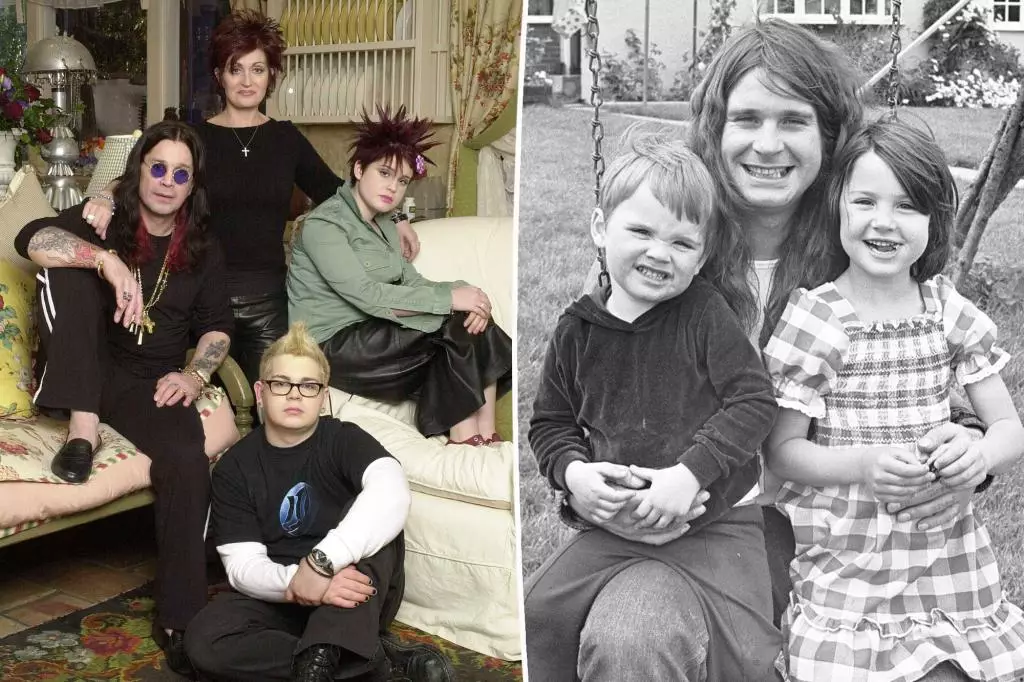Ozzy Osbourne, an icon whose rock-infused legacy transformed the landscape of heavy metal, embodied more than just musical rebellion—he was a man of profound contradictions. His death at age 76 marked the end of an era, but it concealed a deeply intricate personal life characterized by tumult, devotion, and undeniable influence. As someone who lived visibly within the spotlight for decades, Ozzy’s family narrative offers insight into the human side of a legendary figure, exposing vulnerabilities and strengths often overshadowed by his public persona. Reflecting critically, one recognizes that Ozzy’s life was neither linear nor simple; instead, it was a reflection of the complex history that often accompanies fame, addiction, and familial bonds.
His role as a father, for instance, was fraught with challenges. While he achieved unimaginable fame and success, the way he navigated family life was often tumultuous, marked by absences and struggles with sobriety. These circumstances shaped the lives of his children in multifaceted ways—some cultivated an intimate relationship with fame, others sought solitude from the limelight. The juxtaposition of his legendary musical career with his familial difficulties underscores the universal truth: no level of fame guarantees emotional stability or ideal parental relationships.
The Diversity of His Children: A Reflection of Personal Choices and Public Scrutiny
Ozzy’s children represent a spectrum of personalities, choices, and perceptions, each shaped by their unique circumstances. His first three children—Kingsley, Jessica, and Louis—from his first marriage with Thelma Riley, reflect the quieter, more reserved side of his family life. Kingsley, who was adopted by Ozzy, has shunned public attention, perhaps intentionally shielding himself from the chaos that characterized his father’s career. Jessica, the most outspoken, has candidly discussed her difficult childhood, revealing the erratic nature of Ozzy’s early years filled with substance abuse and frequent absences. Her openness provides a perspective on how fame and personal struggles can leave lasting emotional scars.
Louis, the youngest from that era, chose to forge his path away from stardom, embodying the desire for normalcy amid chaos. His marriage and role as a family man contrast with the often tumultuous persona of his father. Meanwhile, the children with Sharon Osbourne—Aimee, Kelly, and Jack—navigated their own paths, heavily influenced by the heightened visibility of their family life. They experienced a mix of fame, rebellion, and attempts at privacy that defined their youth, especially in the wake of the widely publicized “The Osbournes” reality show.
Aimee, in particular, embodies the tension between fame and privacy. Her initial rejection of the limelight—marked by her departure from her family’s MTV show—reflects a desire for independence and control over her personal identity. Her subsequent reemergence in the public eye, though limited, indicates her complex relationship with her family’s legacy. Kelly and Jack, on the other hand, have more actively embraced their roles in media and entertainment, each navigating their own challenges with familial expectations and their personal careers.
An Estranged Yet Resilient Family: A Reflection of Modern Turmoil
The Osbourne family’s history underscores a pattern familiar within many celebrity families: public disputes, estrangements, and reconciliations. Kelly’s candid admission of her estrangement from her sister Aimee reveals internal struggles that extend beyond fame and into the realm of genuine familial disconnection. Their differences—whether ideological, emotional, or rooted in personal boundaries—highlight the universal difficulty of maintaining close family ties amid public scrutiny.
Despite these tensions, the family also demonstrates resilience. Louis’s presence at Ozzy’s passing alongside his siblings indicates a shared sense of loyalty and respect, even amid disagreements and complicated histories. Jack’s ongoing role in the family’s public narrative, through his marriage and the birth of his daughter Maple, signifies a conscious effort to build and preserve new family bonds. Kelly’s engagement to Sid Wilson, marked publicly with humor and warmth at Ozzy’s farewell concert, further reflects the family’s ability to celebrate life and legacy despite internal strife.
The moral here is that even within the realm of unimaginable fame, family remains an unpredictable but vital force. Ozzy’s legacy isn’t solely defined by his groundbreaking music but also by the tumultuous, heartfelt stories of his children—each of whom carries pieces of his DNA, his flaws, and his enduring influence. Ultimately, the Osbourne family saga urges us to reevaluate the glamorization of fame, reminding us that behind every headline are complex, imperfect humans striving to find their place in the world—just like Ozzy himself.

